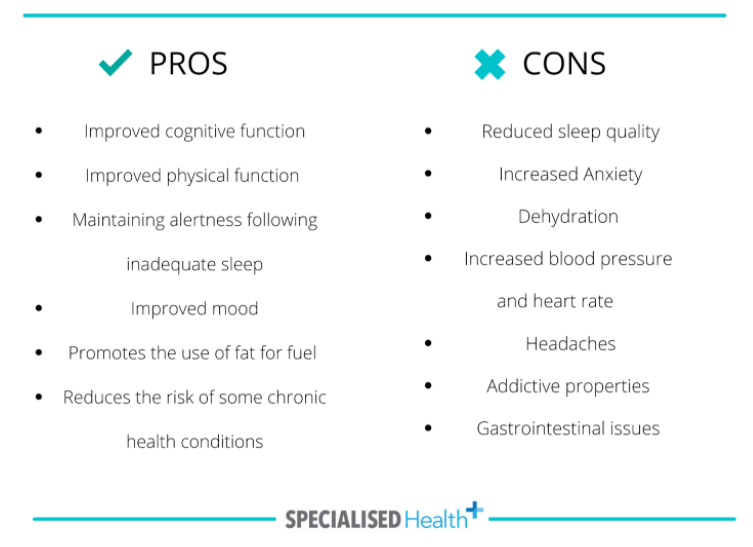Coffee. Helpful or Harmful?
Love or lust? Our relationship with coffee.
Is it healthy or should we be initiating a courageous conversation?
When we sit down to discuss lifestyle habits, it is not an uncommon sight to see fear in the eyes of our clients when we ask, “how many coffees do you have a day?”
Those of us who are familiar with the wonderful smell that is coffee in the morning, know exactly how these individuals feel! Giving up coffee can be a sensitive topic, and we can personally relate to the challenges of cutting back coffee intake (queue exclamations with a hand on our heads - “I just can’t go on!”).
So how bad is coffee for you, really? How much is too much? Do we really need to cut back, or can that task remain in the too hard basket without too many ill effects?
Coffee Science
A good place to start, is what does caffeine actually do in our bodies?
Fatigue in most circumstances is a normal and healthy part of our day to day. So much so that we have a chemical in the body called adenosine whose job is to bring on tiredness throughout the day, to make sure that we are ready to sleep at night! Simply put, the main way caffeine works is by binding to adenosine receptors, and somewhat preventing its sleep-inducing effects. This also allows dopamine, our ‘happy hormone’, to flow more freely, bringing on further feelings of “yay”.
This description does cause some chin-scratching I'm sure. It’s not always a wise move to interfere with the finely tuned machine that is our body! But let’s be honest, sometimes it feels like it needs a little help...
As you can imagine, the physiological effects of coffee consist of both pros and cons.
The table below briefly touches on many of these.
We could go into detail on every single one of these! But we won’t. Interestingly, when looking at research there were many pros. One we found particularly interesting was the reduced risk of chronic health conditions such as alzheimer’s and depression, with low-moderate caffeine intake.
It is a matter of walking that fine line between pros and cons, and this all comes down to how much caffeine you have.
Recommended Intake
With the pros in mind, research suggests “low” (40 mg/0.5 mg/kg) is enough to bring on some of the positive effects, with “moderate” consumption (300mg/day or 4 mg/kg) bringing about all positive effects. To avoid the cons, research suggests no more than 400mg/day.
The chart below gives you an idea of how much caffeine your common go-to’s contain. As you can see, caffeine varies a lot based on how you have your coffee! Keeping in mind we all have different sensitivities to caffeine, but this works well as a guide.
Research also suggests to hold off on that first coffee for an hour in the morning, to allow natural energy boosters (serotonin) to do their thing! And make sure to avoid coffee within 6 hours of bedtime to give your sleep-inducing hormones a chance to do theirs.
In summary, just like our caffeine loving clients at the beginning of this article, you can relax! The answer is thankfully, not in favour of a coffee free life. However, as with many things, we do suggest exercising moderation where your caffeine habits are concerned.
Every relationship requires boundaries. If you relate a little too much to the “cons” listed above, pulling back might just be what you need to re-ignite your healthy, loving relationship with coffee.
Author: Tessa Nielsen







